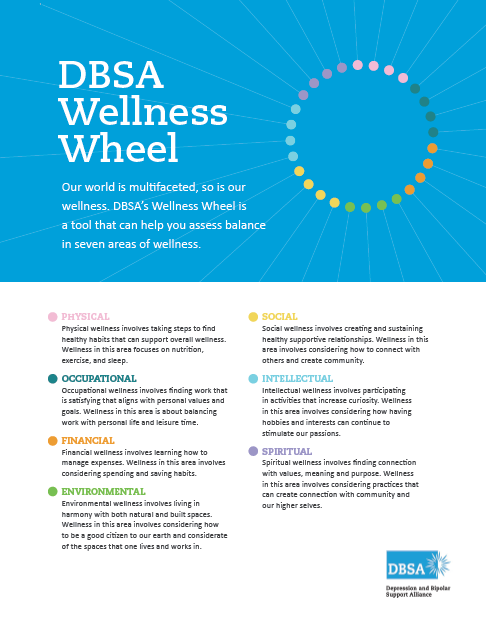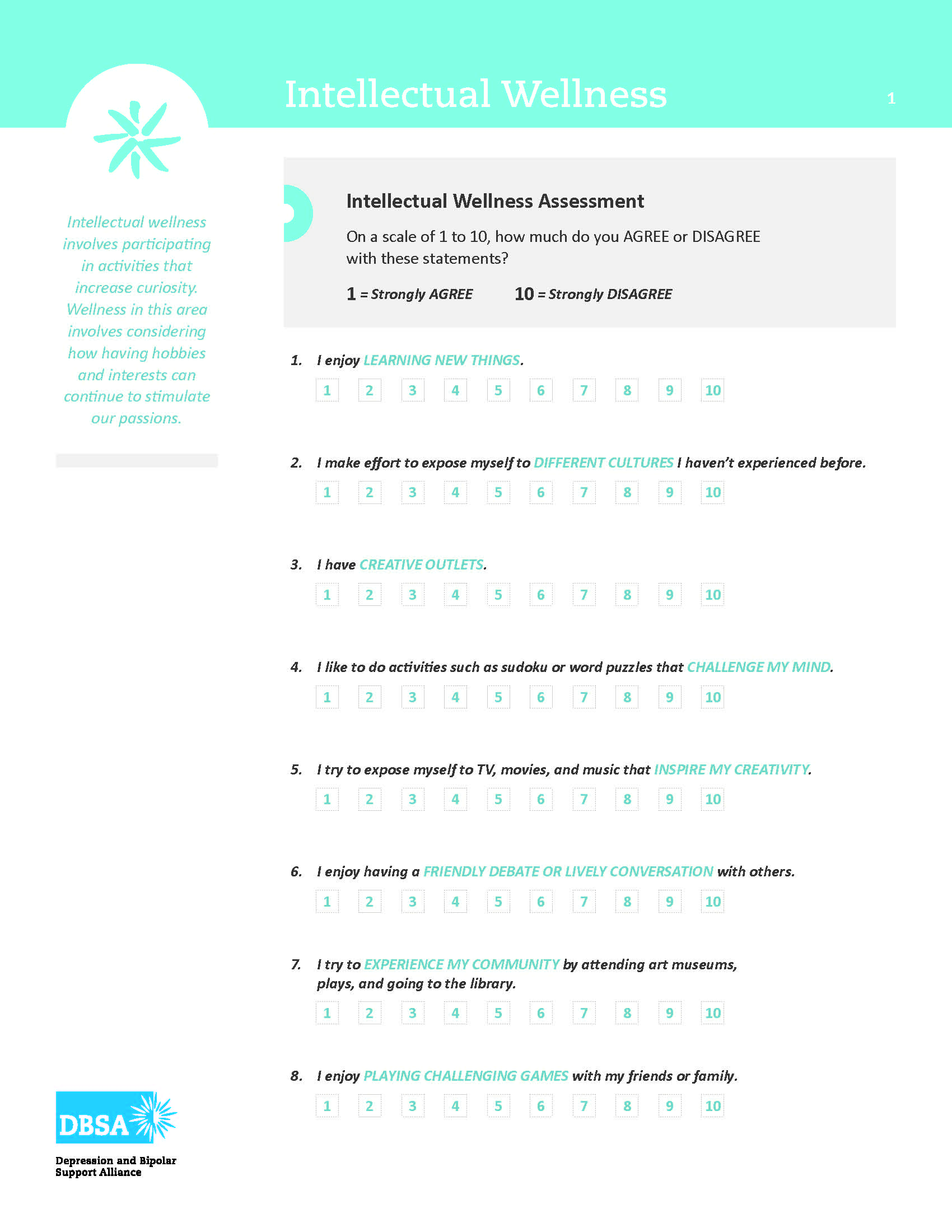Intellectual wellness means finding work and leisure activities that stimulate and challenge your mind, helping you learn new things throughout life. This area of wellness includes your ability to solve problems and listen to others’ ideas respectfully. As someone living with depression or bipolar disorder, you will benefit from finding ways to engage your mind and explore new ideas with others.
Daily skills and your intellectual wellness
Mental stimulation offers us lifelong benefits. In fact, research shows that continuous learning and exploration helps reduce risks for heightened depression, dementia, Alzheimer’s disease, and other cognitive problems as we age.
In building your intellectual wellness, the goal is to seek out work and leisure activities that you find stimulating. If you use your creativity and problem-solving skills regularly, your mind becomes stronger, which improves your day-to-day life now and in your later years. Being intellectually engaged improves concentration and memory, useful both at work and home.
Don’t worry if your job is not giving you that kind of stimulation, as long as it is the right work environment for you. Every person’s career needs are different. Living with depression or bipolar means balancing creativity at work along with your other occupational needs, such as your work schedule, conditions in your workspace and the demands of your job.
Work is just one area where you can find mental stimulation. You can also choose activities outside work that pose good challenges:
- Turn off the screens and do more word work, like reading, journaling, or crosswords.
- Add in some spatial thinking with puzzles and sculpting.
- Engage in strategic thinking with cards and board games.
- Get together with all kinds of people, including those with different viewpoints, and practice active listening.
- Volunteer for an organization whose mission is important to you.
Becoming a lifelong learner
Another fantastic way to strengthen your neural pathways is to explore new hobbies and skills. When you are curious about new things and the world around you, you naturally find new ways to connect with people and get involved in your community. Here are suggestions that support ongoing learning:
- Take up a new hobby that taps your creativity like knitting, or try a musical instrument.
- Experience a new culture through classes, events, or exploring a new neighborhood
- Visit your local library, community center, or city cultural center for great resources.
- Learn a new skill for work.
- Take a class online or in-person or join a professional organization.
A look at time management
People with strong intellectual wellness typically have good time management skills. When you use time efficiently, you can find more time for activities that are important to you. This also helps you consider your total workload so you can communicate what you need to others. Here are some suggestions for managing your time effectively.
Use a tracking system
There are countless weekly and daily planners in print form, and lots of calendar apps out there as well. In addition to tracking your calendar online, you can also find programs for managing projects and tasks. Those tasks can even feed through to your calendar for seamless coordination.
Set specific goals
Saying out loud (or on paper) what you want to accomplish in a given time period is a great way to solidify your commitment to action. Many planners include sections just for goal setting, or you can find downloadable sheets on a number of websites. You can choose to set goals for the year, for every quarter, or each month – whatever is most helpful for you. There is no “right” away to approach this; pick the frequency that helps you stay on track without becoming overwhelming.
For example, you might set a goal that helps you.
- Get training or experience for a job.
- Find a new place to live.
- Strengthen your relationship with a sibling, parent or friend.
After setting your larger goals, make sure you break each one down into smaller steps that are more manageable. These steps should become part of your project and task manager.
Schedule your days
Review what you have to do each day and block out time for projects, both at work and home. Consider when you are most productive during the day and schedule the most difficult tasks for that window of time. Don’t forget to build in time for commuting, getting ready for work or school, or taking care of family members and pets.
Try to be realistic in terms of what you can accomplish, and leave room for the unexpected tasks that pop up during the day. And remember: most people never make it through their to-do lists, so there’s no need to feel guilty if you end the day with tasks still waiting. Just start fresh the next day!
Set boundaries
When you are very busy, or you simply need to build in extra time for rest and self-care, it is okay to say no to additional tasks or requests. Whether you’re responding to a family member, friend, co-worker or a fellow volunteer, it is absolutely acceptable – and healthy – to say you’re unavailable. Feeling comfortable reserving time for yourself is crucial to your overall wellness.











